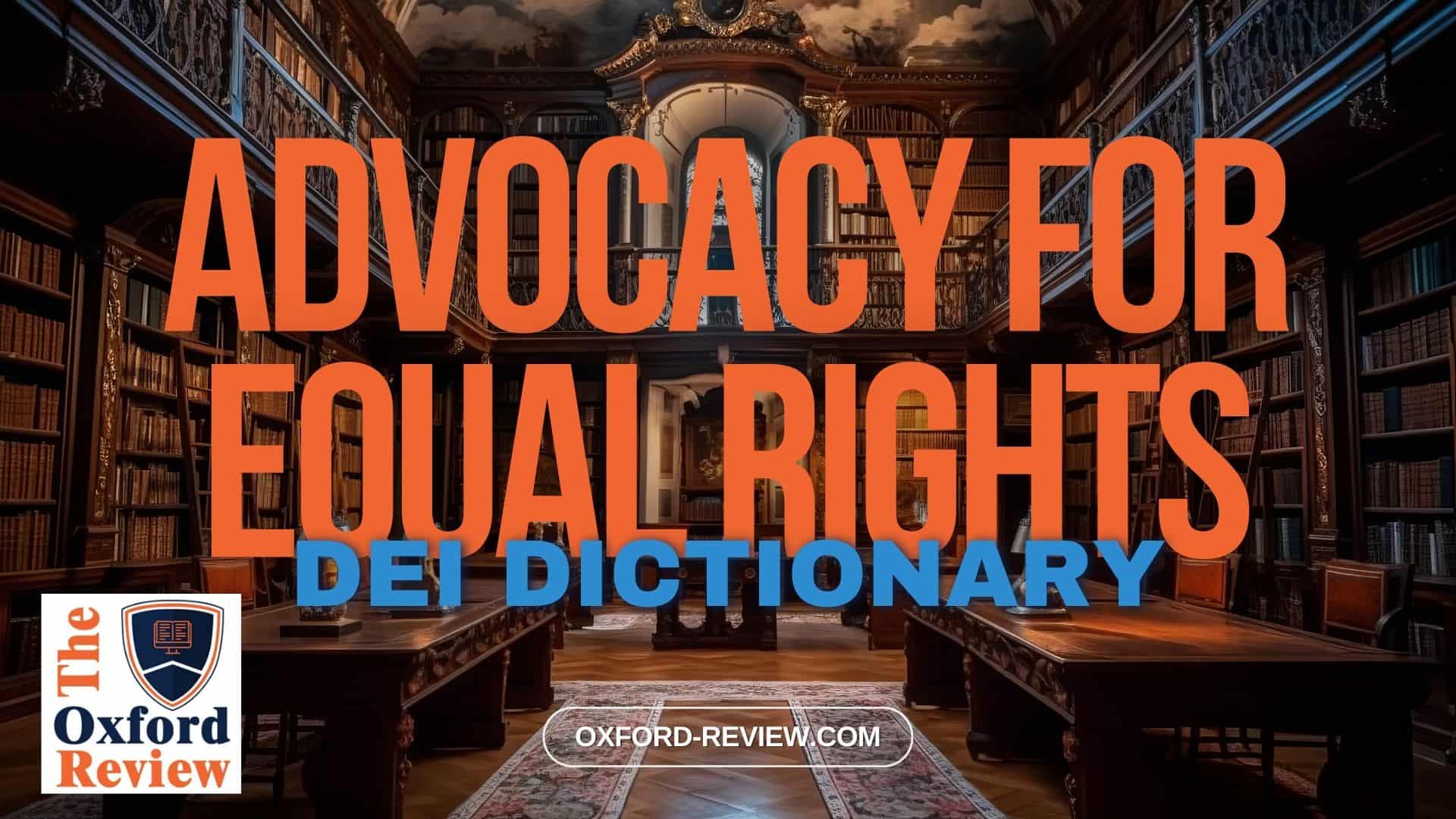Advocacy for Equal Rights – Definition and Explanation

Advocacy for Equal Rights: Championing Diversity, Equity, and Inclusion
Advocacy for equal rights stands as the cornerstone of fostering a society where every individual is valued and respected, irrespective of their race, gender, ethnicity, sexual orientation, or socioeconomic background. In the realm of Diversity, Equity, and Inclusion (DEI), advocacy for equal rights emerges as a powerful force driving positive change and dismantling systemic barriers.
Definition:
Advocacy for equal rights encompasses the proactive support, promotion, and defence of the rights and opportunities of all individuals, particularly those from marginalised or underrepresented groups. It involves raising awareness about discriminatory practices, lobbying for policy changes, and challenging societal norms that perpetuate inequality. At its core, advocacy for equal rights seeks to create a more just and inclusive society where everyone has the chance to thrive on an equal footing.
Importance:
Advocacy for equal rights plays a pivotal role in driving social progress and fostering an environment of fairness and justice. By advocating for policies and initiatives that promote diversity, equity, and inclusion, advocates can dismantle systemic barriers and create pathways for marginalised individuals to access opportunities and resources. Moreover, advocacy efforts help amplify the voices of those who have been historically silenced or marginalised, leading to greater representation and recognition of diverse perspectives.
Example:
Consider the advocacy efforts aimed at advancing LGBTQ+ rights. In many parts of the world, individuals who identify as lesbian, gay, bisexual, transgender, or queer continue to face discrimination and prejudice. Advocacy organisations such as the Human Rights Campaign (HRC) tirelessly work to promote equal rights for LGBTQ+ individuals through advocacy campaigns, legal initiatives, and public education efforts. Their work has resulted in significant advancements, including the legalisation of same-sex marriage in various countries and the implementation of anti-discrimination laws protecting LGBTQ+ individuals in employment, housing, and public accommodations.
Conclusion:
In summary, advocacy for equal rights is not merely a moral imperative but also a catalyst for societal transformation. By championing diversity, equity, and inclusion, advocates pave the way for a more equitable and just world where every individual can thrive irrespective of their background or identity.
References:
Scales-Trent, J. (1998). Equal Rights Advocates: Addressing the Legal Issues of Women of Color. Berkeley Women’s LJ, 13, 34. https://heinonline.org/HOL/LandingPage?handle=hein.journals/berkwolj13&div=12&id=&page=
Be impressively well informed

Get the very latest research intelligence briefings, video research briefings, infographics and more sent direct to you as they are published
Be the most impressively well-informed and up-to-date person around...
